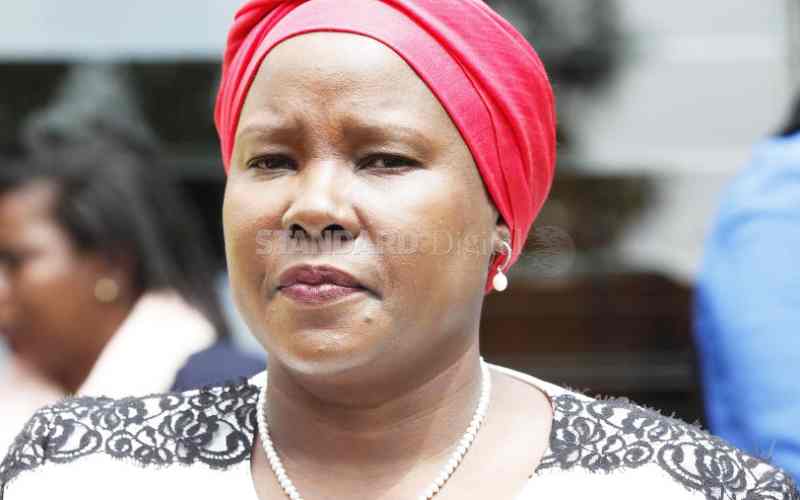×
The Standard e-Paper
Home To Bold Columnists

Olomal Loo Ntomonok (Maa women) chairperson Angeline Siparo. [Standard]
Kenyan women from different sectors want the Building Bridges Initiative proposal on equal gender representation in counties be replicated in all governance structures.